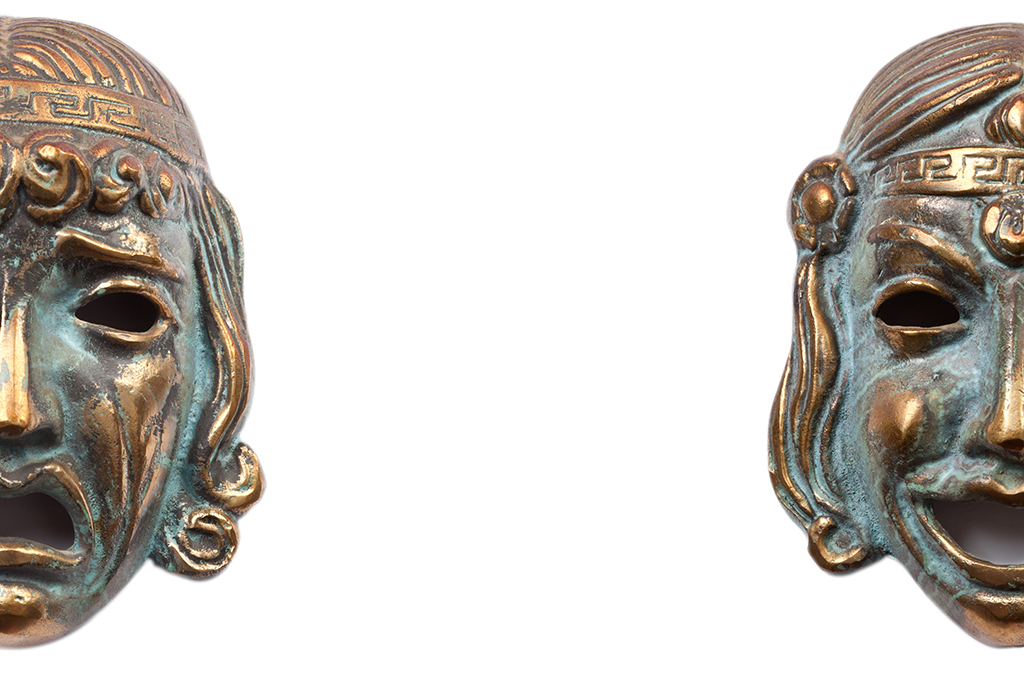What Do Ancient Greek Theatre & Zazen Have in Common?
Blog
Zen practice and the ancient Greeks, have a lot more in common than you may think…
 ©
© Adobe Stock
Actually, the answer is quite a lot. So, starting with the obvious they both involve sitting. In the case of Aeschylus' Oresteia, which I went to see as part of the Almeida Greeks Season at the Trafalgar Studios, for over three hours. The Oresteia consists of 4 plays of which we still have three – there is a missing Satyr play called Proteus. Considering these works date back from 458 BC, it is remarkably fortunate we have any at all. The surviving trilogy which won the Dionysia, the Ancient Greek equivalent of the X-Factor, consists of Agamemnon, The Libation Bearers & The Eumenides.
This production eschews the original text in favour of a new version penned by Director Robert Icke. In the plays’ own blurb, “Orestes' parents are at war. A family drama spanning several decades, a huge, moving, bloody saga, Aeschylus' greatest and final play asks whether justice can ever be done – and continues to resonate more than two millennia after it was written.”
So, back to the original question. Zazen & Greek Theatre are both ‘religious’ acts. These plays were performed as part of a festival dedicated to Dionysus, the Greek God of wine, madness, theatre and religious ecstasy,- my kind of deity! After the Sportsfest which was the Panathenaia, there were no more important dates in your Ancient Greek’s diary. Aeschylus won the festival back in 458 with these plays and they are considered his masterworks. The productions always began with prayers and invocations to the Gods. In this version Icke calls on many deities – even Buddha got a call out!
But were these religious trappings just an excuse to enjoy a bit of a day out, some bloody action thrillers accompanied by a load of knob jokes? Greek comedy has a A LOT of knob jokes. Are they the equivalent of Easter Eggs, delicious but not entirely relevant? Absolutely not; they had a very real social and spiritual purpose. The Greeks were of the very sensible opinion that Drama was key to your mental health.
Like Buddhists, they recognised that each of us contains passions. That these passions, left to their own devices can become feral and dangerous. So, they need to be dealt with in some way. Whilst we sit Zazen to gentle our bulls, for long, leg numbing hours, the Greeks had a more entertaining prescription – Drama.
In his work ‘Poetics’ ,Aristotle talks about cartharsis – which translates as ‘cleansing’ or ‘purification’. The theory, is that a tragedy contains elements which make us feel “pity” and “fear” – I think we can extrapolate from this all those other negative emotions like hatred, anger etc. The Orestiea contains no shortage of these elements. The play is a literal bloody mess – they had to mop up the blood on several occasions. The body count is massive. Fathers kills infant daughters, wives kill husbands and mistresses, sons kill mothers and so it goes on…
Assuming the potential for such violence exists in everyone, rather than attempt to gentle it, is the simpler solution to exhaust it? By showing simulated murder, incest & horror on stage, so we do not have to experience them in real life, there is an undeniable sense of relief and uplift at the end of a great tragic play.
Why? Maybe it’s a case of, ‘like cures like’; seeing violence acted out in this way, we get our fill of it – we feed the need vicariously. Maybe, it performs the same functions as a medieval Morality Play – by seeing where these emotions can lead, it makes us take a step back. Makes us take them more seriously. We are scared straight. Perhaps it also helps to puncture the ego somewhat; when we see our lives in the context of these great events, we are reminded of the scale of our own concerns. Maybe there is something about seeing these things on stage that works a mysterious transformation on these energies – so that pity becomes sympathy and compassion – fear turns to joy.
If you would like to explore some more you could click on the link below where you will find talks, debates and even full cast readings courtesy of The Almeida. You could listen to ‘Oedipus’ but ‘The Frogs’ is more fun!
Nick Julius




